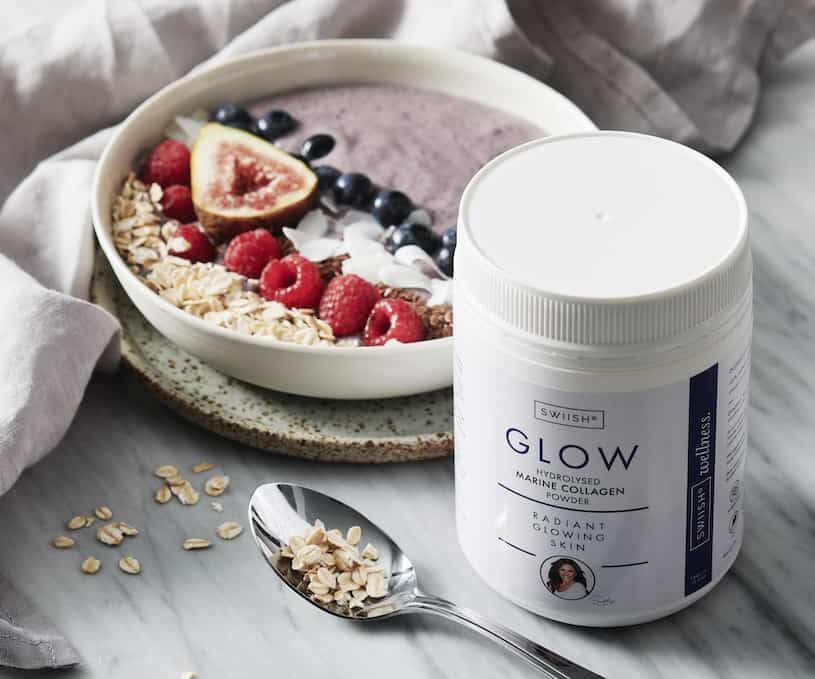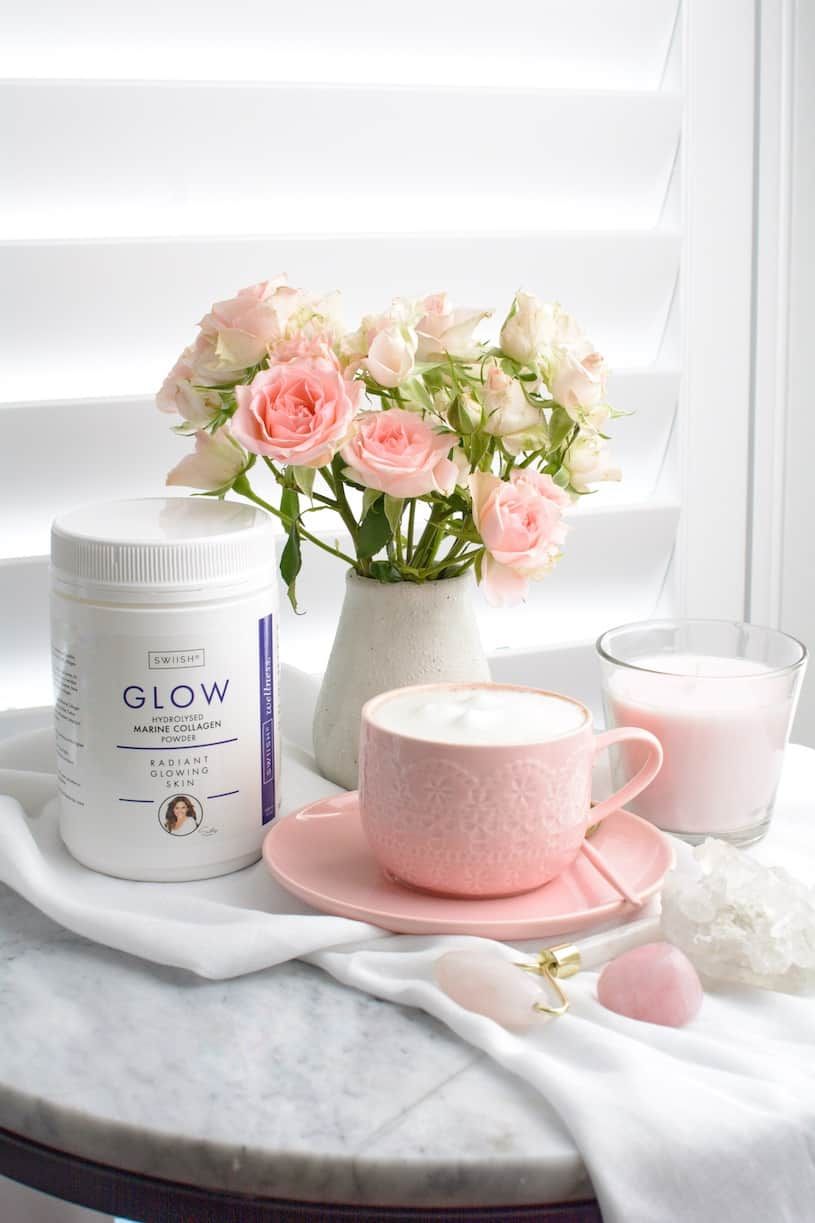
Collagen is the current beauty industry essential for glowing skin, hair and nail health. On top of this, collagen plays a major role in the body as an antioxidant and is involved in wound healing, immune function, and the overall health of your connective tissue.
Known as the most abundant protein in the body, collagen and collagen building substances can be found in a variety of plant, animal and marine life species. Something that has been of great interest to researchers lately, is the importance between the 28 different types of collagen, and what they can do for you.
With collagen products now available in such a vast range of forms, you may be starting to wonder how on earth you can tell which one is for you.
Today on Wellness Wednesday we’re giving you the lowdown on the 3 main types of collagen, including what they’re important for, where you can find them, and how you can get more into your diet every day.
TYPE 1 – To give your skin major GLOW

Collagen Type 1 is the most abundant type in your body, found everywhere from your skin, bones, teeth and even eyes. Although responsible for many integral body functions, Type 1 is most popular for its powerful effect on skin health, becoming particularly important after the decline of collagen production around your mid-twenties!
Extensive studies have proven that Type 1 boosts skin elasticity, minimises wrinkles, and reduces fine lines, which is why we chose to use Type 1 for our GLOW collagen powders!
Also holding the ability to strengthen hair and nails, studies show that this collagen type is excellent for supporting the gut’s tight junctions, which are essentially the glue that holds together your epithelial cells (cells that line different surfaces in the body, e.g. skin, blood vessels, organs, etc.). Alcohol or foods that may irritate your gut lining (such as those containing gluten), can be triggers for loosening these junctions, meaning that the “security check” put in place to allow only selected molecules to enter, will no longer work. All the more reason why collagen intake is so critical.
TYPE 2 – To help with joint mobility and pain

Collagen Type 2 is responsible for your cartilage health which is the connective tissue that connects bone to bone, providing your body with the structural mobility it needs.
Making up around 60% of the protein molecules within your cartilage, collagen Type 2 may be a supportive addition to your diet if you’re struggling from any type of joint or inflammation-associated pain in the body.
This form of collagen is found most readily in bone broth, making it the perfect addition to some winter cooking. These days you can find bone broth at almost every local supermarket or health food store! Our favourite way to get Type 2 collagen into our diet here at SWIISH is by using chicken bone broth in healthy soups.
TYPE 3 – For giving your skin the TLC it needs

This last type works in close conjunction with Type 1 to provide your skin with both elasticity, hydration and strength.
Used mostly in the generation of tissue types that grow and regenerate rapidly (such as the epidermis), it provides structure and integrity to the cells that form your new layers of skin. Instead of simply applying creams and serums to help revitalise old layers of skin, Type 3 (and Type 1) collagen work their magic right down at the stem cells, supporting the health of your skin cells from the moment they are created, providing you with sustained radiant skin.
Also a major component in your circulatory system, this collagen type is abundant within your blood vessels, lungs, and uterus connective tissue, contributing to the healthy function of these vital organs on a daily basis. If you’re in need of some extra Type 3 collagen in your diet, a delicious beef bone broth used as the basis of any dish is the way to go.
Collagen through the ages
Although abundant in your youthful years, collagen production declines each year once you’ve reached the age of around 20. By the time you turn 30, you have half of the collagen that you had at age 18…
So if like the rest of us, you’ve tried your fair share of topical anti-ageing products and just can’t find one that works as much as you would have hoped, that’s because the collagen molecules are often too large to penetrate the skin’s surface. This is where the beauty of adding collagen to your diet comes in, as it instead helps produce cells packed with the collagen they need from the beginning, providing you with timeless glowing and radiant skin.


